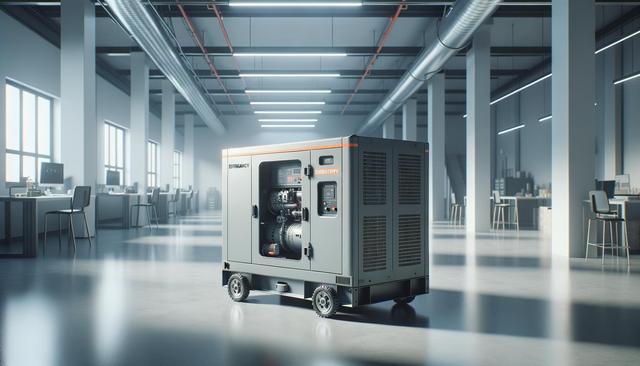Staying Prepared: Why an Emergency Generator Matters
Unexpected power outages can disrupt daily life, but an emergency generator provides a reliable backup when you need it most.

Understanding the Role of an Emergency Generator
Emergency generators are essential devices designed to provide temporary electrical power during outages. When the main power grid fails due to storms, natural disasters, or technical issues, a generator steps in to keep critical systems running. These systems can range from household appliances and heating units to medical equipment and communication devices. By automatically or manually starting when the power goes out, emergency generators ensure that you can maintain a level of normalcy and safety.
Generators work by converting mechanical energy into electrical energy, typically powered by fuels such as diesel, natural gas, or propane. Depending on the size and design, generators can supply power to a few essential appliances or an entire building. This makes them incredibly versatile for homes, businesses, and institutions alike. Having one in place can mitigate downtime, prevent food spoilage, and offer peace of mind during uncertain conditions.
Types of Emergency Generators and Their Uses
Emergency generators come in various types, each suited to different needs and environments. Understanding your options helps in selecting a generator that aligns with your power requirements and budget. The main categories include:
- Portable Generators – Ideal for powering a few essential devices; often used for camping or temporary job sites.
- Standby Generators – Permanently installed and connected to your home or business’s electrical system; automatically turns on during an outage.
- Inverter Generators – Known for being quieter and more fuel-efficient; suitable for sensitive electronics and recreational use.
Each type has its own strengths. For instance, standby generators are often preferred for residential areas where maintaining uninterrupted power is crucial. Portable generators, on the other hand, offer flexibility and are easy to move, making them useful for short-term or remote needs. Inverter generators are appreciated for their clean energy output and quiet operation, making them a good choice for smaller loads or electronics.
Choosing the Right Generator for Your Needs
Selecting an emergency generator involves more than just picking a model off the shelf. It requires evaluating your power needs, available space, fuel preference, and budget. To determine the right size, consider the total wattage of the appliances and systems you wish to keep running during an outage. This will help you avoid overloading a generator that’s too small or overspending on unnecessary capacity.
Key factors to assess include:
- Power output (measured in watts or kilowatts)
- Fuel type and availability
- Run time and fuel efficiency
- Noise level and ventilation requirements
- Installation and maintenance costs
It’s also important to consider local regulations or HOA rules that might affect your installation plans. Consulting with a licensed electrician or generator specialist can help ensure your generator is installed safely and meets your specific needs.
Maintenance and Safety Considerations
Maintaining your emergency generator ensures it functions properly when you need it most. Regular maintenance includes checking oil levels, inspecting filters, and testing the unit periodically. Many manufacturers recommend a monthly test run to verify that the system starts up and operates smoothly. Annual servicing by a qualified technician is also advised to address wear and replace parts as needed.
Safety is another critical aspect. Improper use of generators can lead to serious hazards like carbon monoxide poisoning, electrical shocks, or fires. To use your generator safely, follow these guidelines:
- Never operate a generator indoors or in enclosed spaces.
- Install carbon monoxide detectors in your home or building.
- Use only heavy-duty, outdoor-rated extension cords.
- Keep the generator dry and protected from the elements.
- Follow the manufacturer’s instructions for use and maintenance.
By staying proactive with maintenance and observing safety protocols, you can maximize the lifespan and reliability of your emergency generator.
Applications Beyond Residential Use
While homeowners often benefit from having an emergency generator, these devices are also vital in commercial, industrial, and institutional settings. In hospitals and care facilities, generators are indispensable for powering life-saving equipment and refrigeration units for medicine. Businesses rely on them to maintain operations, prevent data loss, and ensure customer service continuity during power disruptions.
Other common applications include:
- Construction sites where power access is limited
- Data centers requiring uninterrupted power supply
- Farms and agricultural operations needing to keep irrigation, refrigeration, and lighting systems running
- Retail and food services that must preserve inventory and avoid financial losses during outages
Having an emergency power solution in these environments not only protects assets but also supports public safety and economic stability. For institutions and businesses, investing in a dependable generator system is often a part of comprehensive risk management planning.